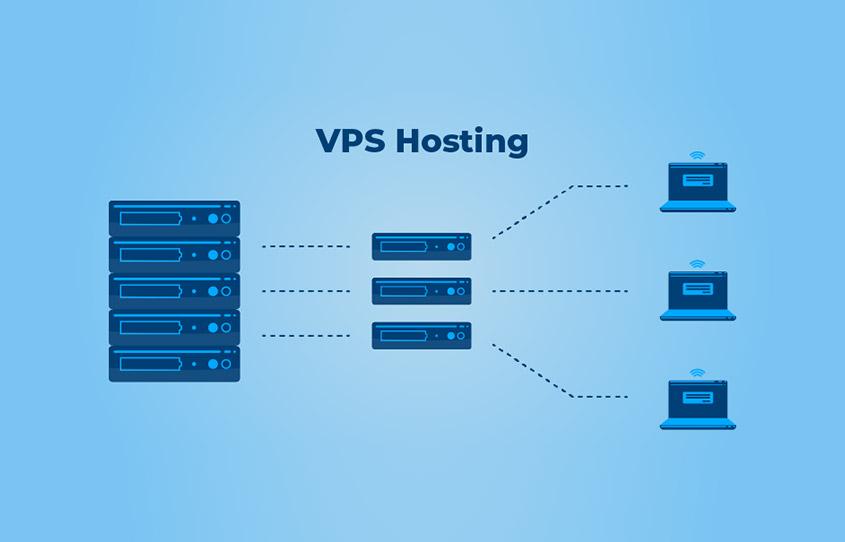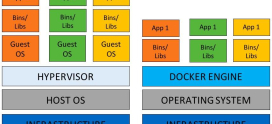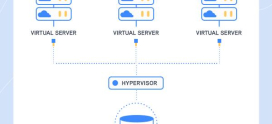
How VPS Hosting Supports Business Continuity in Crisis
In today’s unpredictable world, the idea of business continuity can feel daunting. What if a crisis struck your company? Would your operations come to a halt? The truth is, many business owners share this concern. Whether it’s a natural disaster, a cyber attack, or even a global pandemic, the need to maintain business functions during challenging times is more critical than ever. But don’t fret; you’re not alone on this journey. There are solutions available that can help ensure your business keeps running, even when the going gets tough.
One such solution is Virtual Private Server (VPS) hosting. This powerful tool can significantly bolster your business continuity strategy. By leveraging VPS hosting, you can secure your operations, safeguard your data, and maintain your customer relationships, even in a crisis. Wondering how? Let’s dive in and uncover the transformative role of VPS hosting in supporting business continuity when it matters most.
Understanding VPS Hosting
Before we delve into its benefits, let’s clarify what VPS hosting is. Think of VPS hosting as a middle ground between shared hosting and dedicated servers. In simple terms, it gives you your own slice of a server without the high costs associated with maintaining a dedicated server. Your data is hosted in a virtual environment, allowing you more control and flexibility while enjoying parts of a physical server’s capabilities.
Why Business Continuity Is Essential
In the grand race of business, continuity means keeping the wheels turning — despite what comes your way. Think of it as the safety net you weave to protect your company from the unexpected. Without a solid plan, your business could face severe disruptions, leading to loss of revenue and a damaged reputation. This is where VPS hosting can shine.
Key Features of VPS Hosting
VPS hosting offers a suite of features that are invaluable in times of crisis. Let’s explore some of the most significant ones:
- Enhanced Security: VPS hosting provides robust security measures. Your data is isolated from others on the same server, reducing the risk of security breaches.
- Scalability: As your business grows, so can your server resources. You can easily upgrade your plan to meet increasing demands without disrupting operations.
- Consistent Performance: VPS guarantees dedicated resources, ensuring your website operates smoothly — even during high traffic times.
- Control and Customization: With root access, you have complete control. Customize your server settings according to your needs, ensuring optimal performance.
Security and Data Protection
Imagine this: a sudden data breach occurs while you’re in the middle of a crisis. It’s alarming, right? But with VPS hosting, you have a safety blanket. The isolation VPS provides means that even if one server is compromised, your data remains safe. This level of security is crucial in preserving customer trust and, ultimately, your brand’s reputation.
Tools like firewalls and DDoS protection further bolster the security measures, providing additional peace of mind. Investing in VPS hosting can mean the difference between a minor setback and a full-blown catastrophe.
Uptime and Reliability
During a crisis, the last thing you want is downtime. Keeping your website operational is vital for maintaining revenues and customer engagement. VPS hosting ensures high uptime rates, often critical for avoiding revenue loss. While shared hosting can lead to fluctuating performance due to other websites on the same server, with VPS, you’re guaranteed stability and reliability even in turbulent times. It’s like having a dedicated highway rather than sharing a bumpy back road with countless detours.
Remote Access and Flexibility
In today’s remote work environment, having the flexibility to access your business data and applications from anywhere is invaluable. VPS hosting allows you to manage your server remotely, ensuring that you can respond to crises from the comfort of your home or wherever you may be. You’re no longer tethered to a physical location. This flexibility can be crucial when quick decisions are needed to maintain business operations.
Customer Support
In times of trouble, having a reliable support system can make all the difference. Many VPS hosting providers, such as DarazHost, offer exceptional customer support, available 24/7. This means that if something goes wrong, help is just a click away. Knowing that someone has your back during a crisis allows you to focus on what matters most — running your business.
Cost-Effectiveness
Crisis management can often lead to rising costs. Fortunately, VPS hosting offers a cost-effective solution. By providing a middle ground between shared and dedicated hosting, you can save money while still enjoying many benefits. You won’t have to spend a fortune to ensure your business operates smoothly during unexpected events. Instead, you can allocate your resources toward recovery and growth.
Disaster Recovery Plans
Every business should have a disaster recovery plan in place, and VPS hosting can facilitate this. Regular data backups familiar to VPS services allow you to restore your systems quickly if data loss occurs. Think of this aspect of VPS hosting as an insurance policy for your data. If a crisis hits, your data can be recovered swiftly, helping to avoid severe disruptions.
FAQs
What is VPS hosting?
VPS hosting stands for Virtual Private Server hosting. It provides a dedicated portion of a physical server to a single user, offering more control and flexibility compared to shared hosting.
How does VPS hosting help during a crisis?
VPS hosting enhances security, improves uptime, and allows for quick data recovery, making it easier for businesses to maintain operations during crises.
What are the security features of VPS hosting?
VPS hosting offers isolation of data, firewalls, DDoS protection, and regular backups, ensuring your data is well-guarded against threats.
Is VPS hosting cost-effective?
Yes! VPS hosting provides a reliable hosting option without the high costs associated with dedicated servers, making it budget-friendly for many businesses.
How can I transition to VPS hosting?
Transitioning to VPS hosting typically involves choosing a provider, selecting a plan, and migrating your existing data — many providers offer assistance during this process.
What if I experience technical issues with VPS?
Most VPS providers like DarazHost offer 24/7 customer support for troubleshooting any technical issues you may experience.
Can I customize my VPS environment?
Absolutely! With VPS hosting, you have root access, allowing you to customize your server settings to best fit your business needs.
What is the difference between VPS and shared hosting?
Shared hosting means many users share the same resources on one server, while VPS hosting offers a private portion, providing better performance and security.
How do backups work with VPS hosting?
Backups with VPS hosting typically involve automatic or manual snapshots of your data, allowing for restoration in case of data loss or corruption. Many VPS providers offer regular backup services as part of their packages.
Conclusion
In a world full of uncertainties, investing in VPS hosting is a proactive approach to ensure your business remains resilient amidst crises. With its enhanced security, scalability, and reliability, VPS hosting offers a powerful solution to safeguard your operations and maintain business continuity. Equip your business with the tools it needs to thrive, no matter the challenges ahead. Whether you’re a small startup or a growing enterprise, making VPS hosting part of your strategy can fortify your organization and provide the peace of mind you need to focus on what truly matters — your success.









